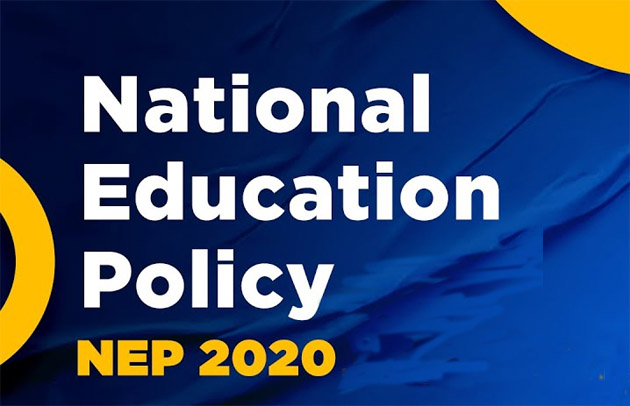Adv Nar Hari Singh
National Education Policy (NEP) 2020, which is a historic and transformative policy that aims to revolutionize the education system in India. The National Education Policy (NEP) is a policy document released by the Government of India that outlines the framework and direction for the development of education in India. The NEP 2020, which is the latest version, was released in July 2020 after almost three decades of its predecessor, the NEP 1986. The NEP 2020 aims to transform the education system in India by introducing new and innovative approaches to teaching and learning, promoting research and innovation, and improving the quality and accessibility of education for all. The policy covers various aspects of education, including school education, higher education, vocational education, and teacher education. The NEP 2020 has received widespread attention and praise for its comprehensive approach to education reform and its focus on the holistic development of students. In particular, the focus will be on the evolution and evaluation of the present teaching methods in law under the NEP 2020. As we all know, the legal profession is one of the oldest and most respected professions in the world. However, in recent times, the legal education system has come under intense scrutiny for its inability to produce well-rounded and competent lawyers who can meet the demands of a rapidly changing world. In this context, the NEP 2020 has recognized the need to transform the legal education system in India by adopting new and innovative teaching methods that can equip students with the knowledge, skills, and values required to succeed in the legal profession. The NEP 2020 seeks to achieve this by promoting interdisciplinary and experiential learning, digital and online education, and promoting research and innovation in the legal field.
The field of law by its very nature is dynamic and changing which demands innovative and experiential ways of learning in all shapes and forms as Benjamin Franklin rightly said:
“Tell me and I forget, teach me and I may remember, involve me and I learn.”
and I think this quotation well explains the process of learning and rightfully differentiates between having theoretical knowledge about a particular subject matter and having learnt something with experience.
The National Education Policy (NEP) 2020 has played a substantial role in bringing significant changes. It focuses on modernization and reform in the field of law. The strategy places a strong emphasis on the need to develop innovative approaches to curriculum development to keep up with the demands of a continuously growing global environment.
There is a huge gap between what young lawyers are taught in law schools and what is expected of them in the digital world. Redesigning the curriculum is important to bridge the gap between the two things.
The world around us is changing rapidly with the advancement in technology and to cope with all of it the education system needs to be effective and up to the mark. Hence, redesigning the curriculum becomes important and inevitable. The creation of a curriculum that is up-to-date captivating and innovative while also fostering holistic development is a key component of the National Education Policy 2020. To put simply, the curriculum needs to take into account the students’ varied requirements and interests as well as their cultural, social, and economic backgrounds.
The NEP 2020 highlights that in all stages, experimental learning will be adopted. In present scenario, the experimental learning has become an essential method in all innovative practices as it holistically strives to shift the child from rote learning and memorization to learning by doing through experience and activity. This gains utmost importance in the context of demands of now and the future in the wake of sweeping changes due to technological revolution. The world has changed rapidly, robotics, artificial intelligence, data science, internet, Zenomics, mobile computing, crowd sourcing, autonomous vehicles, virtual reality are impacting very fast on every aspect of life. To meet out all these challenges, we need to focus more on experimental learning rather limited only to traditional methods of learning, acquiring academics knowledge. Therefore, in light of the above, the emphasis of the NEP 2020 to move towards an experimental/practical method of learning is a welcoming step in education system. The experimental learning make students learn through participation of them in learning process by sharing their own experiences and feedback.
To implement the experiential way of learning the teachers also need to undergo training so that they can involve with the students to gain applied knowledge through their own experiences, sharing etc. The ingredients of experiential learning are in the order of explore, experience and enjoy. The teachers have to make sure that whatever knowledge is being transmitted to them by books or by words that knowledge should be applied also by giving them chance to involve, explore via experiential learning.
The National Education Policy (NEP) 2020 emphasizes the importance of experiential learning as an essential aspect of education. Experiential learning is a teaching approach that involves hands-on learning experiences that allow students to apply theoretical knowledge in real-world settings. In the context of legal education, experiential learning is crucial as it provides law students with practical skills and knowledge required to succeed in the legal profession. The NEP recommends various courses and methods of experiential learning that can be incorporated into the legal curriculum. To name a few, Legal Clinics, Moot Courts, Internships, Legal Aid Camps, Role playing exercises.
In conclusion, the NEP 2020 addresses various related issues in the context of legal education, including interdisciplinary education, technology integration, research and publication, and ethics and professionalism. By addressing these issues, the legal education system in India can produce competent and skilled legal professionals who can meet the demands of the changing legal profession and contribute to the development of the legal profession and society as a whole.
Trending Now
E-Paper


